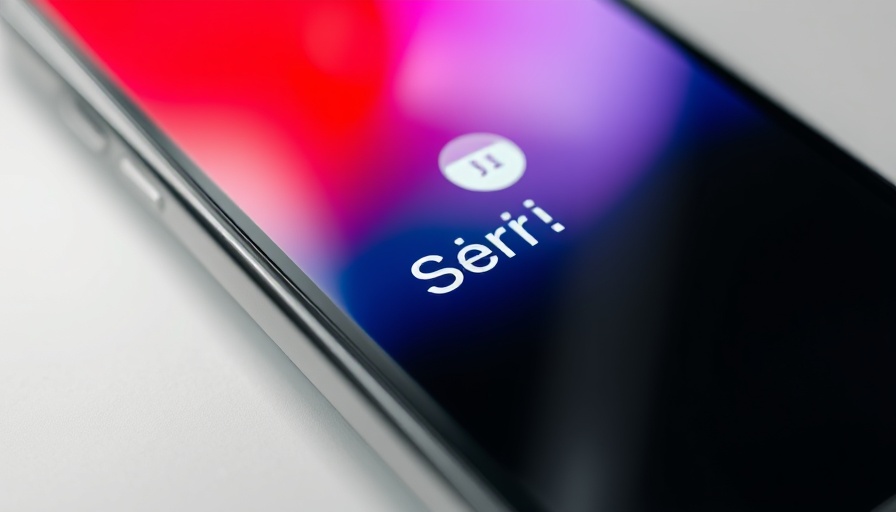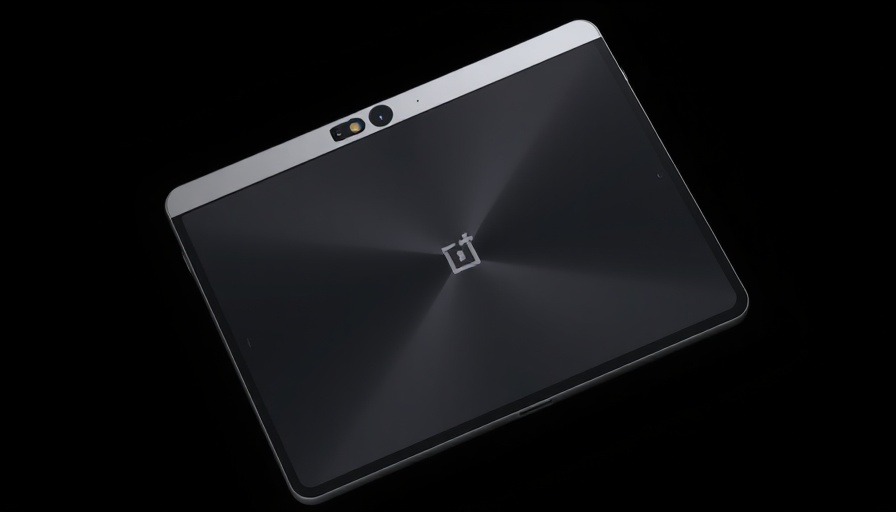
Apple's Siri Overhaul: What You Need to Know
Apple's much-anticipated AI-powered Siri upgrade has a new target launch date of spring 2026, as revealed at this year's Worldwide Developers Conference (WWDC). Initially expected to be showcased during the event, the revamped Siri was notably absent, leading many to wonder about the future of Apple's digital assistant in a rapidly evolving AI landscape.
Changing Tides in AI Development
The confidence Apple exuded upon unveiling its Apple Intelligence last year has seemingly waned as the development of a "smarter" Siri has been fraught with challenges. Reports indicate that Apple faced several setbacks in enhancing Siri's natural language understanding and complex task execution capabilities. The ideal Siri would seamlessly analyze data from users' devices to initiate tasks autonomously—such as creating a calendar event based on incoming texts without explicit prompts from users.
Leadership Shakeups: A New Direction
Adding to the confusion, Apple underwent a significant leadership change in its AI division. Mike Rockwell, the visionary behind Apple's Vision Pro, replaced John Giannandrea, the former head of Siri development. This leadership change came on the heels of delays, with hopes that a fresh perspective might rejuvenate the project and help steer Siri towards its ambitious goals.
What’s Next for Apple’s AI Assistant?
Despite Siri's absence from WWDC, Apple did introduce several AI features. iOS 26 will incorporate AI capabilities like call screening to automatically filter out scam calls, as well as providing voicemail summaries. These incremental improvements illustrate Apple's commitment to integrating AI into their ecosystem, albeit cautiously. The inclusion of an AI-powered Workout Buddy in WatchOS 26 further demonstrates Apple's evolving relationship with AI and fitness technology.
The Competitive Landscape of AI
As companies like Google and Amazon race forward with their AI assistants, Apple's focus on elevating Siri’s performance assumes critical importance. Tech analysts suggest that for Siri to remain competitive, Apple may need to recalibrate its approach—not only enhancing the assistant's functionalities but also rethinking its overall user interaction strategy. The rise of natural language processing technology demands that Siri keeps pace with the increasing expectations of users for responsiveness and intelligence.
Consumer Expectations and Insights
For many consumers, the anticipation surrounding a more capable Siri stems from the rising demand for efficiency in everyday tasks. Features that were once seen as conveniences are now becoming necessities, as smart home integrations continue to proliferate. Therefore, how Siri evolves will significantly impact Apple's reputation in the AI domain and affect consumer loyalty.
Final Thoughts: Can Apple Deliver?
As the tech industry watches keenly, Apple's new target for Siri's launch in spring 2026 presents both a challenge and an opportunity. Only time will tell if this timeline is feasible, but it's clear that Apple must pivot its strategy if it wants to reclaim its position as a leader in AI. Consumers will be left wondering whether the next Siri upgrade will live up to the expectations set by earlier promises—and whether it will indeed "stick." As we approach the target date, the push for a smarter Siri remains crucial as Apple continues its journey through the AI revolution.
 Add Row
Add Row  Add
Add 




 Add Row
Add Row  Add
Add 

Write A Comment